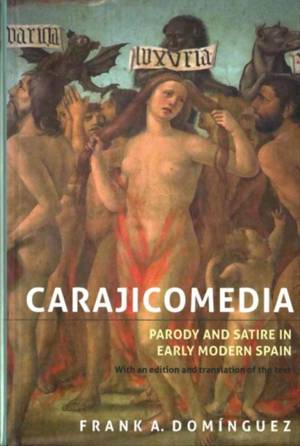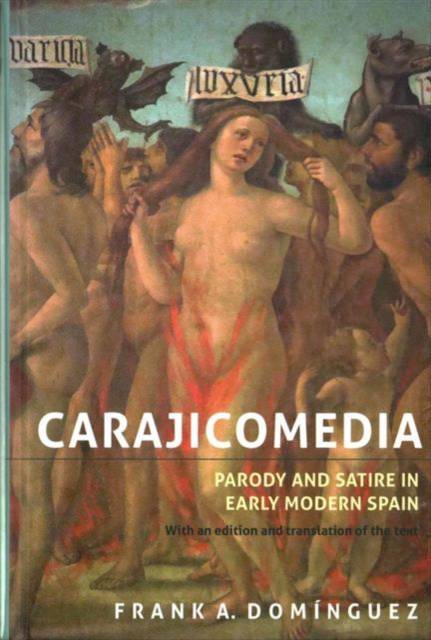
- Afhalen na 1 uur in een winkel met voorraad
- Gratis thuislevering in België vanaf € 30
- Ruim aanbod met 7 miljoen producten
- Afhalen na 1 uur in een winkel met voorraad
- Gratis thuislevering in België vanaf € 30
- Ruim aanbod met 7 miljoen producten
Zoeken
Carajicomedia: Parody and Satire in Early Modern Spain
With an Edition and Translation of the Text
Frank A Domínguez
€ 257,95
+ 515 punten
Omschrijving
Since Carajicomedia was published in 1519, it has been largely ignored by critics because of its strong sexual content. The author of Carajicomedia: Parody and Satire in Early Modern Spain/ believes that it is a sophisticated and complex composition that provides as good a vantage point from which to examine the ideology of the period as does La Celestina. In their poems, the writers of Carajicomedia inadvertently reveal the deep worries of the knights and nobles who opposed the regencies of Ferdinand the Catholic and Francisco Jimenez de Cisneros pending the arrival of Charles V. Carajicomedia is therefore a harbinger of the War of the Comuneros, the great popular revolt that convulsed Spain in 1520. In this book's chapters, the author examines the parodic relationship between the text of Juan de Mena's El Laberinto de Fortuna, the glosses of Hernan Nunez's Las Trezientas, and Carajicomedia. He then turns to its actual writers and their settings, and shows how their satirical attitudes towards males, females, and conversos reveals the failure of the societal mechanisms in place to control desire and miscegenation. Appendix I contains an examination of the language of Carajicomedia, and Appendix II provides a critical and a modern edition of the text, as well as a translation into English. Frank A. Dominguez is a professor of medieval Spanish literature and culture at the University of North Carolina at Chapel Hill.
Specificaties
Betrokkenen
- Auteur(s):
- Uitgeverij:
Inhoud
- Aantal bladzijden:
- 609
- Taal:
- Engels
- Reeks:
- Reeksnummer:
- nr. 353
Eigenschappen
- Productcode (EAN):
- 9781855662896
- Verschijningsdatum:
- 17/12/2015
- Uitvoering:
- Hardcover
- Formaat:
- Genaaid
- Afmetingen:
- 156 mm x 234 mm
- Gewicht:
- 1034 g

Alleen bij Standaard Boekhandel
+ 515 punten op je klantenkaart van Standaard Boekhandel
Beoordelingen
We publiceren alleen reviews die voldoen aan de voorwaarden voor reviews. Bekijk onze voorwaarden voor reviews.








